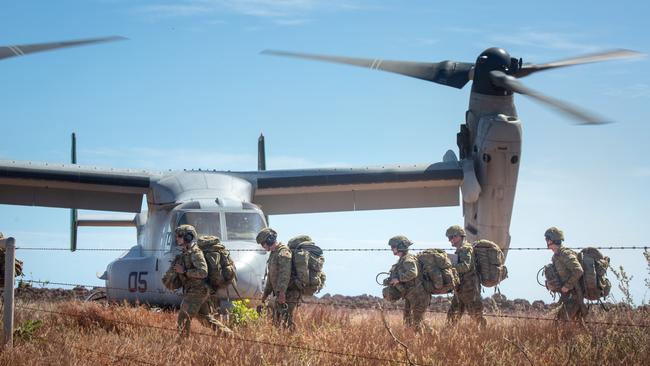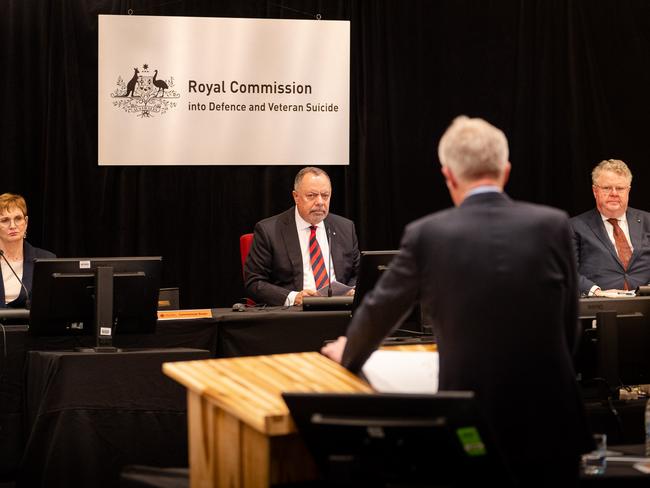Royal Commission into Defence and Veteran Suicide inundated with submissions
Troops testifying to the Royal Commission into Defence and Veteran Suicide have been assured they will not be penalised amid a “surge” in submissions.
National
Don't miss out on the headlines from National. Followed categories will be added to My News.
Military personnel testifying about harassment and bullying culture in the ranks will not be penalised, the chief of the defence force has declared as the royal commission inquiry has received a “surge” in submissions.
ADF chief General Angus Campbell has given assurances there would be no recriminations as serving personnel queue to give evidence to the Royal Commission into Defence and Veteran Suicide.
The commission reconvened in Darwin on Tuesday with commissioners visiting various bases in the Top End including Larrakeyah Barracks, HMAS Coonawarra and RAAF Base Tindal.

But it will also look at Robertson Barracks where at least two soldiers took their own lives in 2017 amid reports of bullying and intimidation and subsequent reports of self-harm and attempted suicides.
The parents of 21-year-old Private Thomas Halloran, who died by suicide on 26 April 2022 after being posted to 5RAR at Robertson Barracks, are expected to give evidence next week. The commission has heard John and Robyn Halloran were still recovering from the shock and pain of their loss but were still prepared to give evidence.
Commissioner Nick Kaldas, in his opening address, confirmed there had been a significant influx in the number of serving members coming forward to “tell their story”.
“Sixty-two new submissions were received in just two days, which is heartening. This is certainly significant when compared to an average of just five submissions per day between January and June,” Mr Kaldas said.

“Our total submissions have now passed 2500, we’ve recently received many more from current serving members and we’re grateful to everyone who has had the strength and courage to share their story with us.”
He said General Campbell had given the commission public and private assurances no serving member would be penalised for speaking to the commission.
Mr Kaldas said some of the evidence he had already received had been “disturbing” but were valuable to the commission to recommend change; already most of its 13 recommendations from its interim report from August have been adopted.

The commissioner had heard the Darwin hearings were important as there were some unique experiences of veterans and some 12,000 current-serving personnel and their families.
The fact that Darwin is a primary jump point for deployments and post deployments will be a focus.
“Living or being deployed to rural and remote locations can create serious challenges for veterans, serving personnel and their families,” Mr Kaldas said ahead of the formal opening.
“Additional stresses such as feeling isolated, not having support of your loves ones, or having difficulty accessing emergency or allied health services, can be enormously difficult.”

On Robertson Barracks, Mr Kaldas said it was not a specific focus but required further investigation. “If you or anyone you know has experience you wish to share with the Royal Commission about Robertson Barracks, we are seeking submissions from current and former serving members and their families.”
The commissioner interim report handed out in August exposed 13 suicide failures including staff shortages, complex laws, bad admin and a “limited willingness” by Defence to act on historic abuse cases in the ranks as contributing to unacceptably high rates of suicide in what was “a national tragedy”.
Lifeline: 13 11 14
Open Arms 1800 011 046




